A Green New Deal and a New Green Federal Theatre Project
A Green New Deal in the United States should come with provisions for a New Green Federal Arts Program, including a New Green Federal Theatre. As a model, we can look to the creation of the Federal Theatre Project in 1935, which came out of the dire reality of the Great Depression. Like the New Deal, the Green New Deal is an economic initiative, put forward not by a progressive President, but by Congresswoman Alexandria Ocasio-Cortez and Senator Ed Markey. It is a work-in-progress plan to rapidly decarbonize and has stirred widespread interest and support among those who understand that a climate crisis is at hand. The Green New Deal calls for a ten-year mobilization to make the US carbon neutral by 2030 by ending most greenhouse gas pollution from energy, transportation, agriculture, and manufacturing. It proposes to do so by putting people to work in green jobs that provide “a family sustaining wage, adequate family and medical leave, paid vacations, and retirement security.”
The New Deal put millions to work on public projects, building roads, bridges, parks, schools, many of which are still in use, and it put unemployed artists to work, too, on Federal Arts, Writing, and Theatre projects, each of which created significant works that impacted American culture.
In her definitive history of the Federal Theatre, Arena, written shortly after the project’s defunding in 1939, visionary Federal Theatre Director Hallie Flanagan recalls her first conversation with Harry Hopkins, head of the Works Progress Administration (WPA):
“People ride over roads and bridges built by relief workers, but will they ever come to a theatre to see shows put on by relief workers?” Harry Hopkins asked her.
“It seemed to me that they wouldn’t be relief workers after they started. They’d be theatre workers again. People would come if the plays were good and wouldn’t come if the plays were bad.”
Federal Theatre quickly developed an expansive program: classic, new, Black, and religious dramas, dance drama, children’s plays, and puppet shows. Federal Theatre companies went by horse cart into mining and farm towns; local Federal Theatre companies created and performed plays in communities across the country and in New York in Harlem and on Broadway.
A New Green Federal Theatre would take advantage of the skills and knowledge of the many climate artists and activists who, working in communities across the nation, are creating rituals and climate actions, writing and producing original plays, and staging productions on shoestring budgets.
If the original mandate was to pay workers, the intention was to pay them for creating—as Flanagan said—the kind of quality art that was necessary for the understanding of democracy. In Greece, her husband Philip Haldane Davis had translated an inscription carved into the rock of an ancient theatre: “We let out these works on the vote of the people.” Flanagan writes in Arena that she hung a sign with those words on the wall of her Washington office, commenting that the Federal Theatre was “a theatre the contracts for which, twenty-two centuries later, were also let out according to the dictates of democracy.”
The Federal Theatre necessitated the creation of new theatre forms. Chief among these were the Living Newspapers: large scale, multi-media productions designed to use as much labor as possible—research teams of journalists and writers, large casts, full orchestras. The Living Newspapers addressed pressing social problems of the day, and proposed progressive democratic socialist solutions. In Triple A Plowed Under, about the plight of dust bowl farmers, a character called Farmer from Indiana suggests: “a diversion to farm relief of a large part of the immense war appropriations, and increasing taxation on the wealth and income of the financial and industrial interests of this country,” solutions applicable today.
Many of those who joined the Federal Theatre project had been part of the left-wing Worker’s Theatre Movement of the 1920s, creating a people’s theatre, doing street theatre, and founding companies with the purpose of producing socially relevant plays. Federal Theatre took advantage of artists who were already working for social change. This was its great strength but also made Federal Theatre the target of the right-wing Congress that killed the project in 1939.
A New Green Federal Theatre would take advantage of the skills and knowledge of the many climate artists and activists who, working in communities across the nation, are creating rituals and climate actions, writing and producing original plays, and staging productions on shoestring budgets. As with Federal Theatre, an underutilized labor pool, skilled and educated, already exists, though locked out of institutional theatre employment precisely because of these artists’ commitment to a fossil fuel free, green future.
A New Green Federal Theatre would document the efforts of the Green New Deal to deliver economic justice and sustainable life-styles to the people while mitigating and adapting to the climate crises. It would have a democratic mandate to address how our lives are now and how they are going to increasingly become in the midst of the growing climate crisis. Human beings have, without forethought, willfully exited the Holocene, that period of a mild and stable climate conducive to civilization we enjoyed for 12,000 years until the start of the industrial revolution. The United States, the largest consumer for the longest amount of time, and, more recently, the world’s biggest producer of fossil fuels, bears a primary responsibility for the climate crisis of the Anthropocene, the current and future era of climate disruptions we have caused but which we cannot control.
Without a new cultural vision, we are going to make the very bad situation we have caused even worse.
The laudable goals of the newly formed Groundwater Arts consulting organization to move toward a Green New Theatre by launching an effort to “encourage (regional) theatres to adapt and evolve their practices in response to the climate crisis” are—I believe—unfortunately likely to falter without public pressure and public monies. It is difficult to see regional theatres paying a consulting organization to help them overturn their own corporate structures, which at present are dependent on an economy in which the fossil fuel industry yields high investment returns because it is so heavily subsidized by taxpayer money.
If the theatre were free from the corporate financial restrictions currently hampering such explorations, theatre artists, on salaries, mandated to create cultural works for the public good, would be free to join the most significant and necessary cultural and political movement of our time—working toward and for a Green New Deal.
What Does A New Green Theatre Look Like?
The plays of a New Green Federal Theatre would cover many subjects and embrace many aesthetic forms, but underneath them all would be a visionary commitment to a new sustainable, fossil fuel free way of life committed to environmental justice, just as the plays of Federal Theatre envisioned an equitable democratic society in which public funding was used for the public good.
A theatre suitable to life in the Anthropocene will decenter the individual story, and re-center people’s relationship to community, to animal and plant life, and to a new humility in which we come to understand ourselves as fragile parts of the natural world. Without such a new culture giving meaning to our lives, we are likely to become more cruel, violent, and hording as we experience mass migration, food shortages, drought, sea level rise, extinction events, and furious storms. Without a new cultural vision, we are going to make the very bad situation we have caused even worse.
A poetics of the Anthropocene draws on the ancient, but also, a newly developing, more humble awareness, as we struggle to come to conscious understanding of our fate. The isolated hero blindly destroying what he loves is the colonial, patriarchal story we have inherited and which we need outgrow. Our story takes place in the aftermath of the tragedy of Western Civilization, after the heroes and the emotionally tortured have wreaked their havoc. This does not mean that character and story become unimportant, but that compelling characters will recognize the disastrous reality and reverse that trajectory by cultivating a new standard that relies upon developing reciprocity, values the welfare of the many, is conversant with the aggressive and the nurturant sides of self, and comes to understand individual death as part of the round of life.
At worst, we will be confronting massive losses: home, seasonal regularity, and species whose sounds and actions pollinate, fertilize, and please us so. We need to share this grief, not deny it. At best, we will be coming into a new sense of the human as no longer a part from and dominating nature, but relishing, embracing, loving, and enhancing it. We might cease to be so lonely, violent, and grasping, in this new, far more fragile world, for we shall need our connectedness to one another, to creatures, and to other living things. As we become increasingly aware of the sentient lives of plants and animals, our own sentient awareness will become more alert and pleasurable. We will live with less certainty, less stuff, but we will understand, value, and use well what we make and share. An end to “othering” is essential to this vision. The racism and sexism that damage us so will be fully seen and in the seeing, undone, as new, equitable relationships are given shape.
A New Green Federal Theatre would be about intuiting, creating, and heralding a brand new, expansive, eco-centered consciousness, honoring the unique selves of all that lives.
In many essential ways, the values we need are part of our American culture. Neighbors have always helped each other out. The self-reliance of Thoreau, the mystic, nature-centered individualism of Dickinson, Whitman, Emerson, and the other transcendentalists, the courage of the abolitionists, and our tradition of nonviolent civil disobedience through which every significant democratic advance has been won.
There are numerous places to look for inspiration for the new ways of seeing/being, and for thinking with feeling about humanity’s new place in the fragile world. The Native American traditions and indigenous people’s cultures, world-over, have enormous wisdom; ancient goddess myths and rituals remember a time when the divine was embedded in the world; transgender and ecofeminist theories undermine the binary; individual and collective dream-life allows access to deep truths; visionary writers like Octavia Butler, Ursula LeGuin, James Baldwin, and the growing fields of ecological and scientific nonfiction and climate fiction (cli-fi) expand consciousness and explore the new reality.
Our role as artists working for and toward a Green New Federal Theatre must be to look at the moral and the ecological crises and to show the results of good choices or bad. This is what Aristotle truly taught that has value now: theatre is the seeing place where audiences come to watch the impact of the costs and rewards of moral choices characters make. The theatre was created to ask this precise question: what does it mean to be human? How do we recognize our separateness from the rest of the living world without destroying it? And, now, again, valuing indigenous knowledge, how do we recognize the particular awareness of other kinds of life—the fact that trees communicate with each other, or that the octopus possesses consciousness?

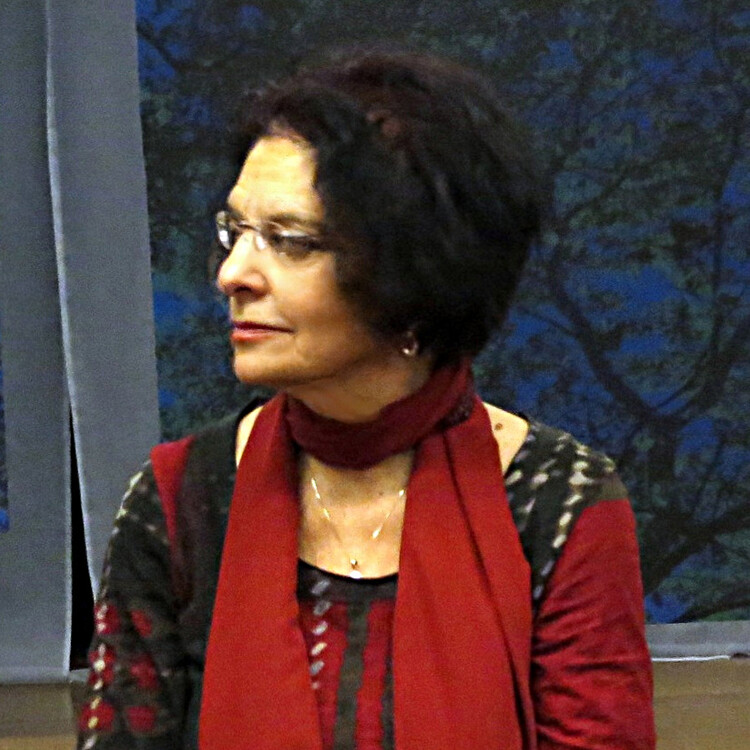
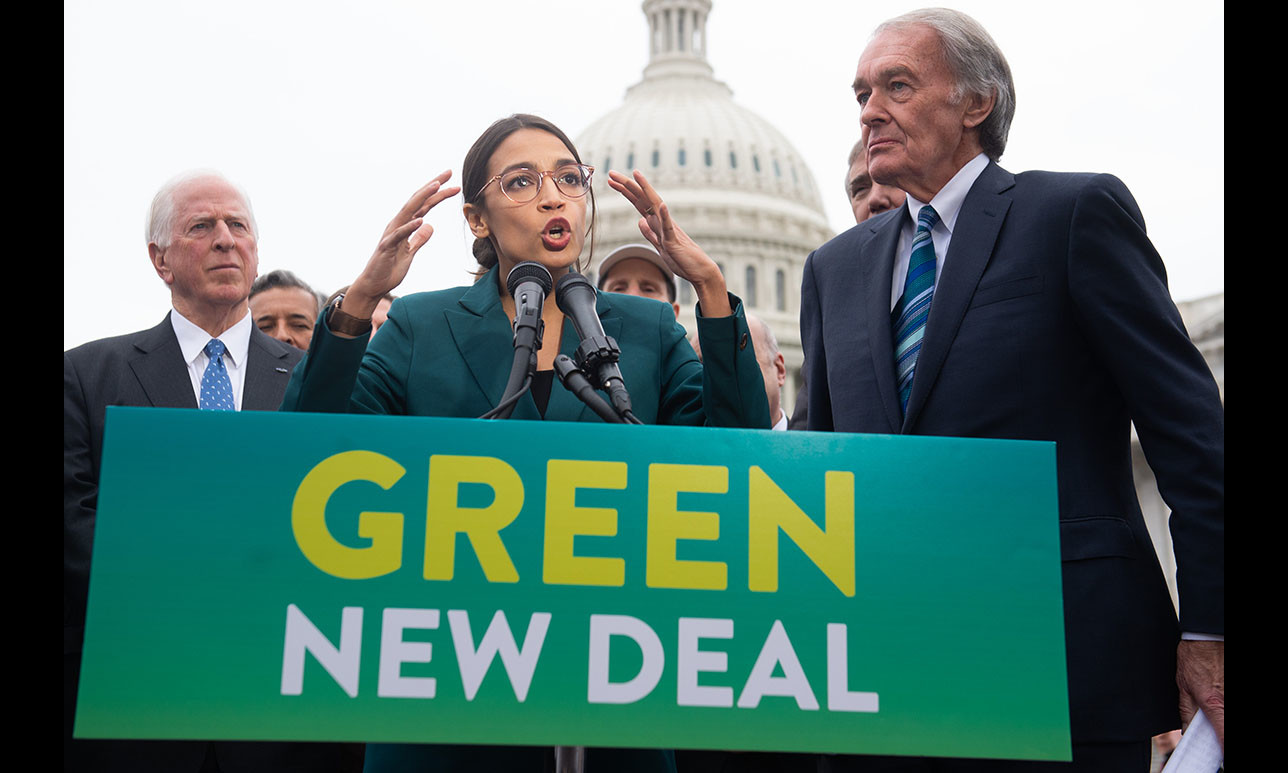
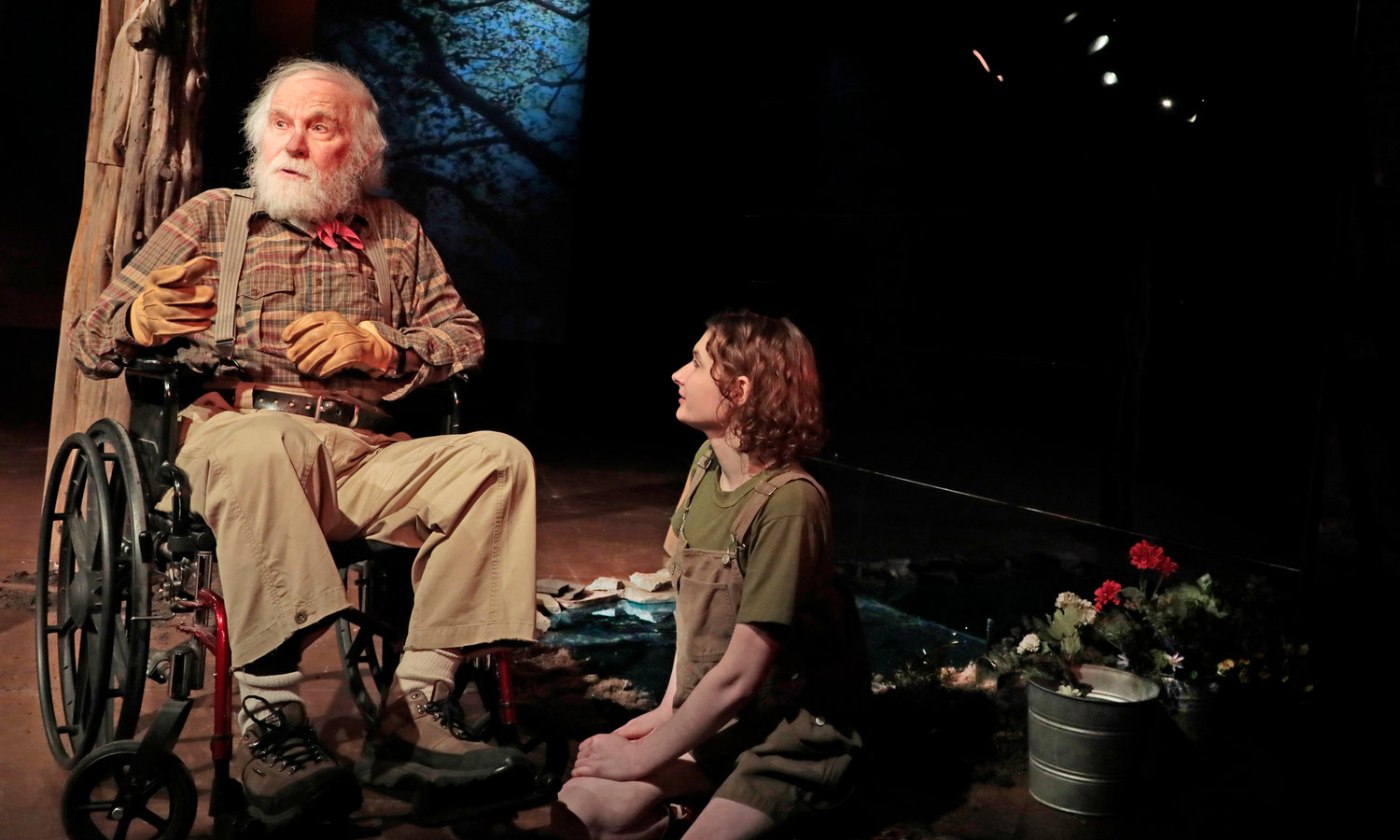
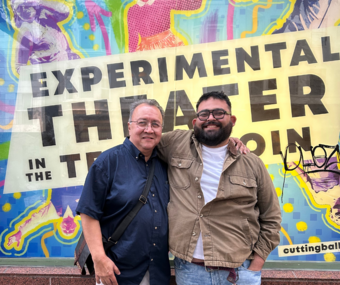


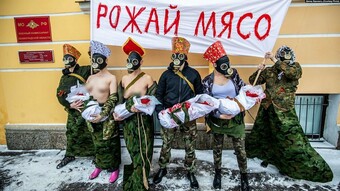


Comments
The article is just the start of the conversation—we want to know what you think about this subject, too! HowlRound is a space for knowledge-sharing, and we welcome spirited, thoughtful, and on-topic dialogue. Find our full comments policy here
Thank you for the breadth and depth of this essay. I was happy to see you reference Thoreau and Whitman. In their work, they show that democracy is based in something bigger than politicians. It's rooted in the people "en masse" but also within the integrity of the "drummer" or "Song" of each individual.
About 5 years ago, in 2014, while directing my play about Buckminster Fuller at San Jose Rep, I got a very sharp intuition that climate change would come much more rapidly than scheduled on any of the widely published timetables. Our atmosphere is all fluid dynamics. With fluids, the patterns are predictable and the changes are gradual, until they suddenly leap to chaos, into what Mac Wellman calls "Tohu Bohu" in his 1980s environmental statement, ALBANIAN SOFTSHOE. We are turning our planet into the ice moons of Saturn. Our atmosphere is moving toward a climate of hurricanes, of freezing and/or boiling soups.
Last year, the NY Times said the decade to save the planet was the 1980s. Oddly, that's exactly the 10 year window Bucky Fuller defined as the time frame for saving Spaceship Earth. As time passes, I lean more and more into the belief that we now have only 18 to 24 months to turn the tide. Thank you for the link on that. If that's true, the 2021 inauguration is too far away to help. There is hope...
"But can we convince humanity in time
To exercise its option to save itself?"
--- Bucky Fuller
Bucky also said, "It's touch and go. We have a choice... Utopia or Oblivion." His vision of democracy and abundance echoes Thoreau and Whitman...
When the world believed there was not enough to go around,
selfishness made sense.
But now we know there is enough to go around,
selfishness has no integrity whatsoever.
We're coming into this absolutely new...
it could be
the moment—
when democracy—
really might work.
There are logical things
that can be and should be done
for all of humanity which a democracy...
It might really seem very spontaneous
and its what you just do—
like the crew of a ship when the ship's in danger.
Spaceship Earth's in danger. Find out what needs to be done.
--- R. Buckminster Fuller:
THE HISTORY (and Mystery) OF THE UNIVERSE
Thank you for your thoughts and for these quotes. All important. What is the name of your play and how can we read it?
The title of my play is at the bottom of the last quote...
R. Buckminster Fuller:
THE HISTORY (and Mystery) OF THE UNIVERSE
from the life, work and writings of RBF
I'll post a production history at another time. It's played in approximately 20 cities, with about 8 different actors. It's a two hour distillation of his much longer 8, 10, 12, and even 42 hour lectures. The longest lecture was called Everything I Know, and it's available online. I'm working with the Estate on a draft to publish this Fall. I'll find you on FB, send you a message with my email address. I can send out a pdf of an earlier production draft. The only place it's been published in book form is in a limited edition in Poland, with English and Polish on facing pages.
In September, we're taking the play to Black Mountain Center for the Arts, NC, and to Krakow. In October we'll be at Southern Illinois University, Edwardsville and Carbondale, both campuses where Bucky taught throughout the 1960s.
It will play all three nights at this Symposium in Krakow: https://www.fuller-in-cracow.pl/
I am glad to know your play is having a life. Bucky Fuller sounds so rational "just do" what needs to be done. Of course, of course, but the greed of the fossil fuel fanatics is dominating us. it will take a mass movement, not just an election, of people inspired by the great thinkers and doers of the past. so thanks very much for your work, for helping to keep visionary thought alive.
I am posting a comment by Noam Chomsky, a colleague and friend, to whom I sent this article: "Great idea. I remember very well the highly significant impact of the original in the lives of poor working people (mostly unemployed) like my own extended family. Not much of a formal education, but lively discussions of the latest Shakespeare performance."
Chomsky is very illuminating on how and when the last vestiges of the original New Deal were attacked and dismantled.
"A theatre suitable to life in the Anthropocene will decenter the individual story, and re-center people’s relationship to community, to animal and plant life, and to a new humility in which we come to understand ourselves as fragile parts of the natural world. " Your words are almost exactly like those I wrote for the preface of my 6 hour tikkun,( called powerful and important theater by the Shakespeare Theatre Company and praised by other theater peers, not yet performed or produced) so sick of bourgeois theater in the same old form with same old story.
Just got an award from blueinstitute.org for short eco-play "Water Spirits' Colloguy." Can be read online..
And Hallie is a hero.Years back I anted my version of "IT Can't Happen Here" to be done as she did theater, around the country. Didn't happen. But: Now I have a play taking place right now, "HERE!" a satire and tragedy called "stunning, a new Our Town for our times," "scary, prescient, funny" by audiences who've seen it in readings.
Saw Sen. Markey at Cape Playhouse, Dennis, re Green New Deal, packed house. I asked him about funding! He said vote the Dems in and we will get funding for it. Your idea, Karen, that funding should go to a Green New Deal Federal Theatre Project is great!!!
Love your courage, your work, your heart. Your conscience. You are always an inspiration!!
Hi Lee, although we have never met, I feel an intense connection to you and your work. Hallie is a hero to us both. I sometimes feel if everyone knew the history of Federal Theatre, the theatre world would be inspired. Yes, if we Vote the Green New Dealers into office, we will have a voice, and leverage to push to an Arts Program--which would employ people, on salary, as FT did, and would have the real virtue of broadening the narrative. Write well!
Thank you Karen for this visionary piece, which broadens the Green New Deal discussion to include creativity and the arts as it relates to "green" theatre-- democracy in this country suffers terribly from a failure of public support for all the arts. Now we need a myriad of proposals from every sector of the arts and discussion of each and all modeled on Karen's pioneering work here.
Indeed, that would be fantastic, "a myriad of proposals"! Thank you for your comment.
My play, "Sea Level Rise: A Dystopian Comedy", opens TONIGHT at Theatre Row on 42nd street in NYC. Plays tonight, August 2 & August 3. Please come see it.
https://www.sealevelriseplay.com/
I believe in the ability of theatre to enlighten and entertain. By setting, "Sea Level Rise" in the future, I'm able to make the characters on stage deal with climate change in the moment.
Congratulations, Henry Feldman, on the premiere of your play!
Now, my question to you, is wouldn't you like a Green New Deal with a New Green Federal Arts Project.
Thank you, Karen Malpede, for offering this inspiring vision of both the direction our "green" theater might take and a path toward constructing the institutional supports needed to sustain it. As a poet and fiction writer, I'm now thinking about how these insights can be applied to other arts fields. We need to move beyond the prevailing dichotomy of the self-funded bohemian-in-the-attic versus the foundation-funded or "public-private partnership" model, the latter ultimately tracing back to corporate sponsorship and severe if often invisible capitalist constraints on the imagination. We need to become the people Muriel Rukeyser spoke of: "considering a nameless way of living, of almost unimagined values."
Thank you for broadening the discourse to include all writers. Thanks for quoting Muriel Rukeyser! Inspiring as she always was/is.